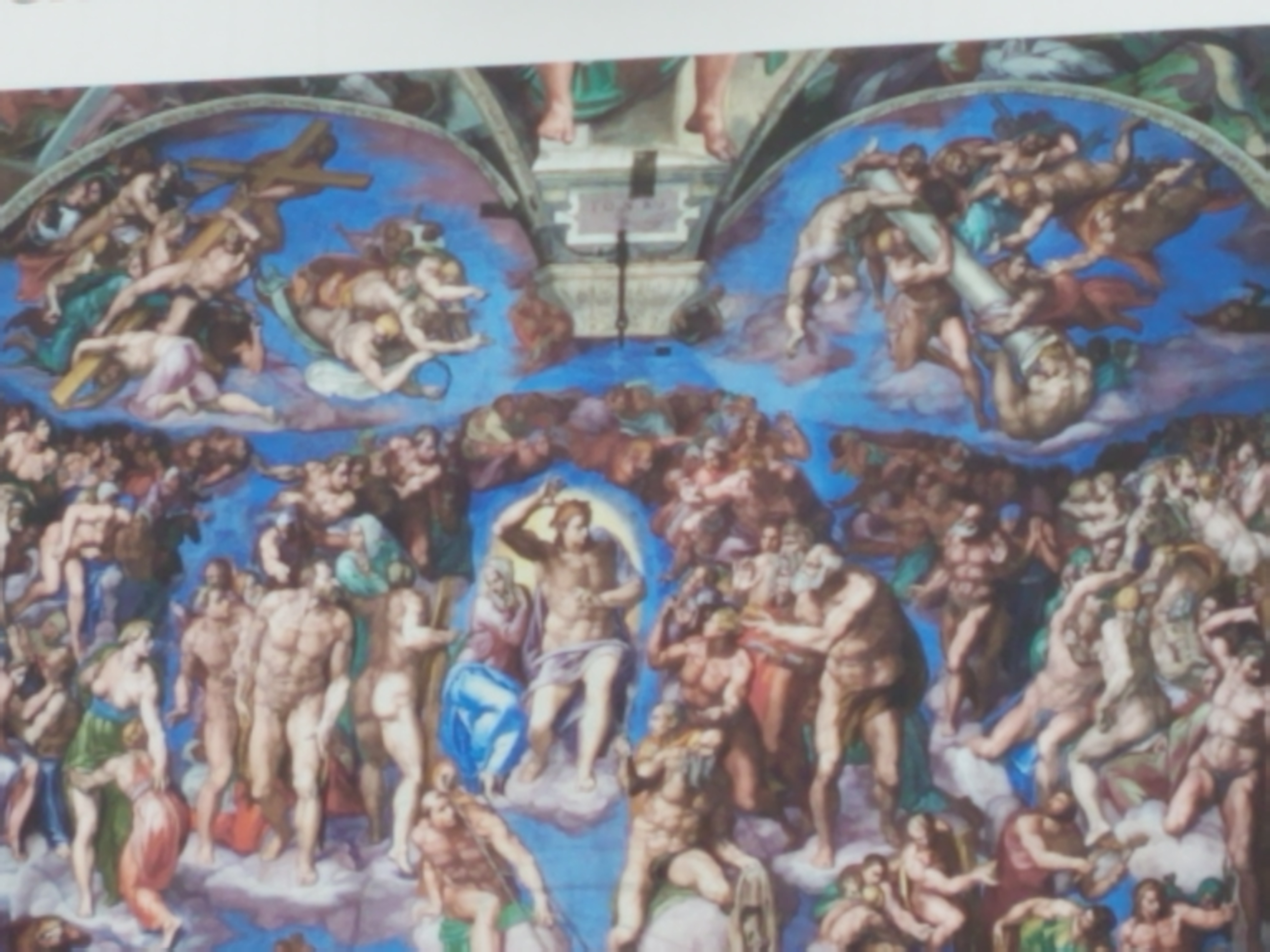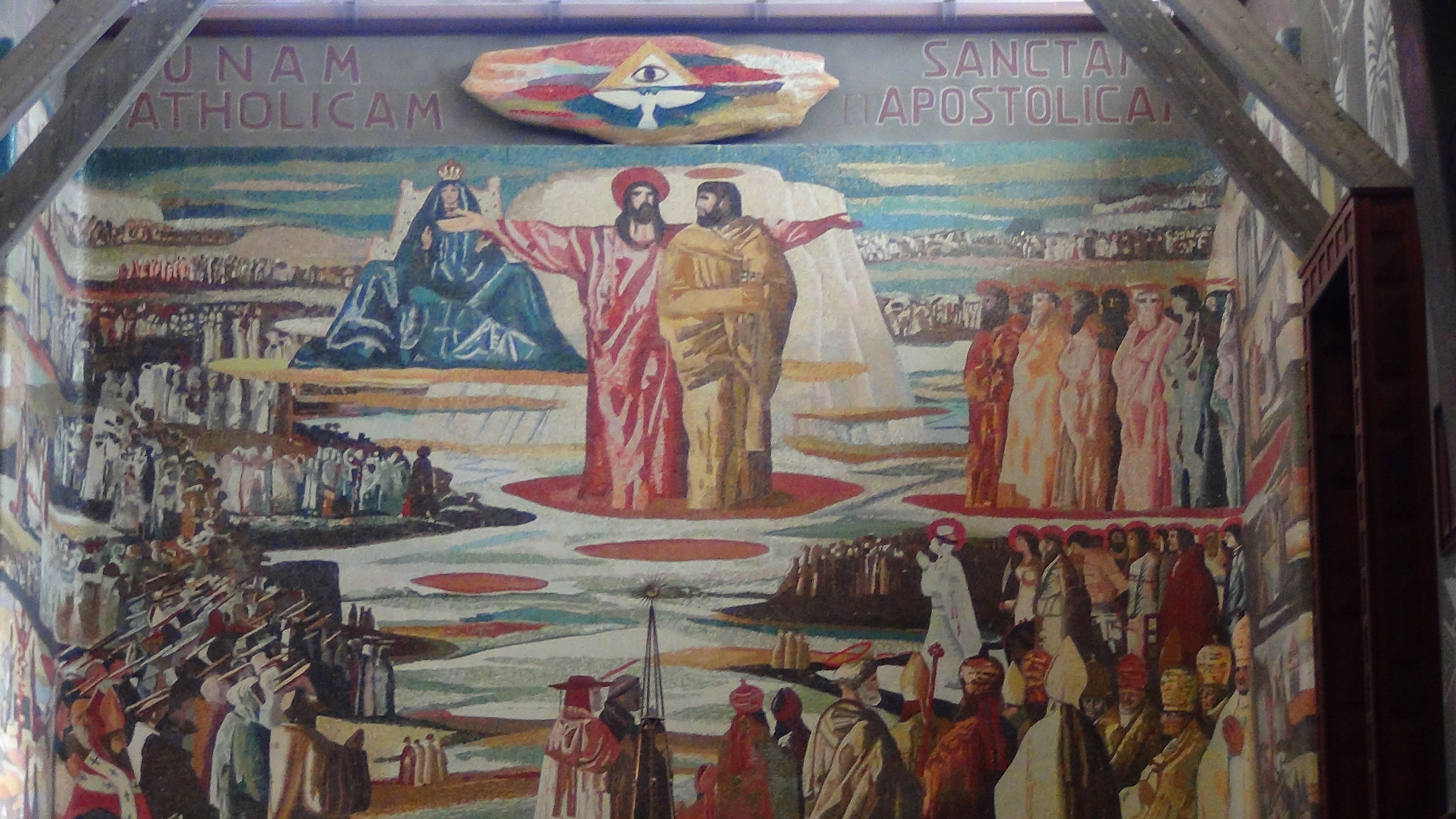1 Kings 19:9a, 11-13a; Ps. 85:9-14; Rom. 9:1-5; Mt. 14:22-33
We live what our faith proclaims! In today’s gospel reading, Peter proclaims faith in Jesus saying “Lord, if it is you, command me to come to you on the water.” As long as his faith was in Jesus he walked with courage on the water. When his faith focused on nature, his humanity, the waves “how strong the strength of wind was” he began to sink in fear calling out to Jesus to be saved. Jesus response, “O you of little faith, why did you doubt?”
Jesus answers Peter with one word, “Come.” With all the sound of the wind, waves, and a rocking wooden boat Peter heard Jesus’ one word to come. Elijah is also listening for the Lord in the first reading but he does not hear him in the wind, the earthquake, or the fire. The Lord comes to Elijah in the “tiny whispering sound”. Jesus himself “went up on the mountain by himself to pray”. If our faith is to respond to the voice of the Lord, we must silence our hearts and minds and open our souls to hears in the quiet the command of Jesus.
One of my favorite places for retreat is Lebh Shomea in Sarita Texas. By its name Lebh Shomea means a “listening heart”. We arrive in silence, remain in silence and leave in silence among the natural wildlife as we come to pray. The estate was bequeathed to the Order of Oblates and became a House of Prayer. One of the rules of Lebh Shomea is “silence” in all areas, at meals, in the Library, outside, and even when going as a couple we are to walk apart and keep the rule of silence, that is to maintain a listening heart.
One of my first experiences going to Lebh Shomea was seeing all the natural wildlife. As I walked about the property the deer would simply move to keep their distance from me. It seemed natural for each to respect our space. It also seemed the animals sensed my own restlessness before I was able to quiet my mind and heart beginning to enter into a more contemplative state of prayer.
After being there for a few days, I was walking praying the rosary when I noticed the deer no longer reacted to my presence and I had become part of the environment. As I prayed the rosary, one doe began moving towards me. At first, I was surprised and as it approached me, I just stood still waiting to see what would happen next. It came right up to me and looked at me and then at my rosary, turned and walked away. I realized then that the sound of the rosary in this quiet environment attracted it to me. In the silence I had become an accepted member of their environment.
It is in the quiet that we become united to the Lord able to listen for his voice. Our faith proclaims what we receive in our “listening heart”. Like Peter we often are attentive to the world around us and find ourselves proclaiming what the world proclaims, fear, injustice, sickness, lust, self-righteousness. Jesus is the just one who we are to listen for and respond to his invitation to “Come.” Come and proclaim our faith by our acts of virtue. Focus on Jesus and fear not the invitation to proclaim the power of the Lord in our lives. We live what we allow into our faith, this will always come out in our actions. Whether we walk on the spiritual water or sink in the ocean of life it is an act of what we proclaim by faith. Live the Godly faith and we will enter into the spiritual waters of faith, hope, and love with Prautes (Greek meaning “a still heart”).







Recent Comments